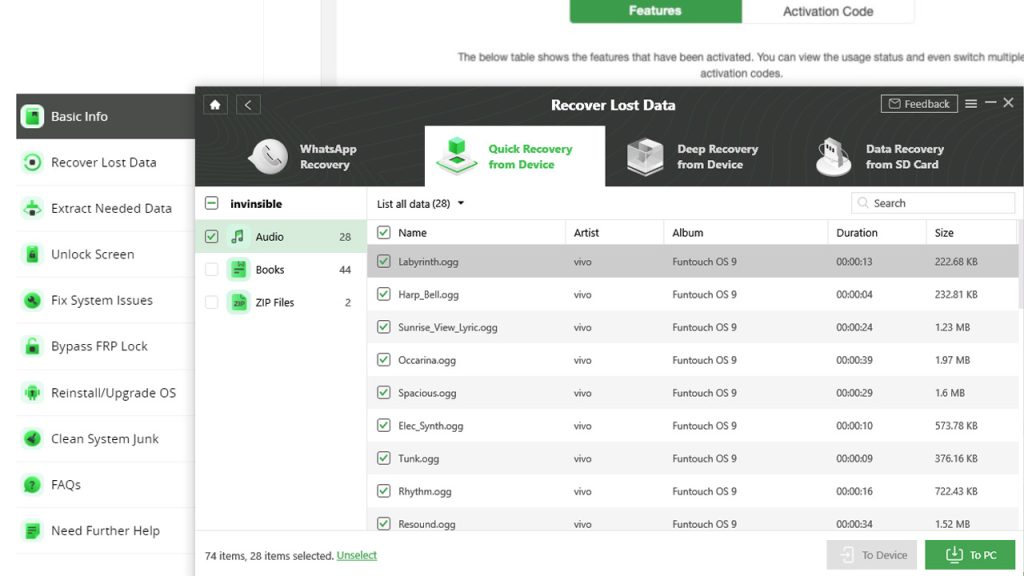When developing applications for the Android ecosystem, compatibility is one of the most critical considerations. With a diverse range of Android versions still in use, developers must ensure their tools and frameworks are compatible across different versions to reach a wider audience. DroiDKit, a powerful toolkit for Android development, has gained popularity due to its ease of use and comprehensive functionality. However, the big question remains: “Is DroiDKit compatible with all versions of Android?”
This blog delves into the compatibility of DroiDKit with various Android versions, offering insights into its technical capabilities, limitations, and real-world use cases.
What is DroiDKit?
DroiDKit is a versatile and robust toolkit designed for Android developers to simplify and enhance the app development process. It offers various tools and libraries that assist in handling routine tasks like user authentication, data synchronization, UI development, and more. Built to streamline Android app development, DroiDKit promises to reduce time and effort for developers while providing advanced functionalities out of the box.
Key Features of DroiDKit:
- Comprehensive API Support: Provides APIs for accessing device hardware, sensors, and native Android features.
- Cross-Platform Integration: Supports integration with various back-end services and platforms.
- User Interface Components: Comes with pre-built UI components to accelerate development.
- Security Features: Built-in modules for user authentication, encryption, and secure data storage.
- Performance Optimization Tools: Offers tools to optimize app performance and reduce memory usage.
Understanding Android Versions: A Fragmented Landscape
To understand DroiDKit’s compatibility, it’s essential first to grasp the Android ecosystem’s fragmented nature. Android has undergone numerous updates since its inception, with each version introducing new features, APIs, and security protocols. As of today, some of the most common Android versions still in use include:
- Android 5.0 Lollipop (Released in 2014)
- Android 6.0 Marshmallow (Released in 2015)
- Android 7.0 Nougat (Released in 2016)
- Android 8.0 Oreo (Released in 2017)
- Android 9.0 Pie (Released in 2018)
- Android 10 (Released in 2019)
- Android 11 (Released in 2020)
- Android 12 (Released in 2021)
- Android 13 (Released in 2022)
Each version brings changes in API levels, security patches, and new functionalities that may affect the compatibility of development tools like DroiDKit.
DroiDKit Compatibility Across Android Versions
1. Compatibility with Android 5.0 Lollipop and Earlier Versions:
DroiDKit is partially compatible with Android 5.0 (API level 21) and earlier versions. The toolkit utilizes several libraries and components that rely on newer APIs introduced in Android 6.0 and later. Developers targeting Lollipop or earlier versions may encounter limited functionality in certain areas, particularly in security features and modern UI components.
Limitations:
- Security Modules: Many security features, such as advanced encryption and biometric authentication, are unavailable due to missing API support.
- UI Elements: Some modern UI elements and animations that require newer rendering engines may not function as expected.
- Performance: DroiDKit’s optimization tools are designed for newer architectures, which may result in degraded performance on older devices.
Conclusion for Lollipop and Earlier: While some core functionalities remain accessible, DroiDKit’s full potential is not realized on devices running Android 5.0 or earlier. Developers may need to implement additional workarounds or use alternative libraries for full compatibility.
2. Compatibility with Android 6.0 Marshmallow:
Android 6.0 Marshmallow (API level 23) introduced significant changes to the Android ecosystem, including app permissions and Doze mode. DroiDKit offers broader compatibility with this version, supporting most of its core features.
Strengths:
- Enhanced Permissions Management: DroiDKit supports dynamic permissions introduced in Marshmallow, allowing developers to handle permissions more granularly.
- Improved Security Features: Basic encryption and authentication modules are fully functional.
- Stable UI Components: Most UI components in DroiDKit are compatible and perform efficiently.
Weaknesses:
- Advanced Features: Certain features, such as integrated machine learning modules or advanced camera APIs, may still require newer versions.
Conclusion for Marshmallow: DroiDKit offers solid compatibility with Android 6.0, making it suitable for most applications that do not require the latest Android features.
3. Compatibility with Android 7.0 Nougat and Android 8.0 Oreo:
Android 7.0 (API level 24) and 8.0 (API level 26) brought further refinements to the platform, including split-screen mode, notification channels, and enhanced security. DroiDKit fully supports these versions, providing a stable and optimized development experience.
Key Advantages:
- Rich Notifications: DroiDKit leverages the improved notification system introduced in Nougat and Oreo.
- Background Processing: Efficient handling of background processes through APIs provided in these versions.
- Security and Performance: Utilizes enhanced encryption and secure storage options.
Challenges:
- DroiDKit does not support features like Dynamic System Updates, introduced in later versions.
Conclusion for Nougat and Oreo: DroiDKit provides a highly compatible environment for app development on Android 7.0 and 8.0, supporting most features except those introduced in later versions.
4. Compatibility with Android 9.0 Pie and Android 10:
Android 9.0 (API level 28) and 10 (API level 29) are where DroiDKit shines the most. These versions are known for significant improvements in performance, security, and user interface customization.
Full Compatibility:
- Gesture Navigation: DroiDKit supports new navigation gestures introduced in these versions.
- Adaptive Battery and Brightness: Utilizes adaptive battery settings to optimize app power usage.
- Dark Mode: Full support for dark mode, enhancing the user interface on OLED screens.
- Improved Security: Full integration with Android’s latest security enhancements, including TLS 1.3.
Conclusion for Pie and Android 10: DroiDKit is fully compatible with Android 9.0 and 10, making it an ideal toolkit for developing apps targeting these versions.
5. Compatibility with Android 11 and Beyond:
With Android 11 (API level 30), 12 (API level 31), and 13 (API level 32), DroiDKit has adapted to meet the evolving needs of developers. These versions introduced extensive changes like scoped storage, one-time permissions, and more.
Major Strengths:
- Scoped Storage Support: DroiDKit supports the new scoped storage paradigm, ensuring data security and privacy.
- One-Time Permissions: Fully compatible with the new permissions model, which allows one-time access to sensitive data.
- Compatibility with New APIs: DroiDKit integrates with newer APIs such as those for 5G, foldable devices, and more.
Limitations:
- Backward Compatibility: Apps using DroiDKit and targeting the latest features may not be backward compatible with much older Android versions.
Conclusion for Android 11 and Beyond: DroiDKit is fully compatible and optimized for Android 11, 12, and 13, supporting all the latest features and functionalities.
Technical Considerations for DroiDKit Compatibility
To understand DroiDKit’s compatibility more deeply, let’s explore some technical aspects developers need to consider:
- API Levels and DroiDKit Modules: DroiDKit’s modules rely on certain minimum API levels. Developers should consult DroiDKit’s documentation to match these with their target Android versions.
- Testing Across Multiple Devices: Testing is crucial to ensure DroiDKit’s features function properly across different devices and Android versions.
- Using Backward-Compatible Libraries: In cases where DroiDKit’s features are limited, consider using AndroidX libraries or other backward-compatible libraries to extend functionality.
Real-World Case Studies: DroiDKit in Action
- Case Study 1: E-commerce App Development
- A team of developers used DroiDKit to build a high-performance e-commerce app targeting Android 7.0 and above. They reported full compatibility with devices running Android 8.0 and higher, achieving a user base across multiple Android versions.
- Case Study 2: Fitness App Development
- Another example involves a fitness app that integrated DroiDKit’s APIs for GPS tracking and motion sensors. The app successfully ran on Android 6.0 and above, with minor adjustments for older versions to handle permissions dynamically.
- Case Study 3: Banking App Development
- A banking application utilized DroiDKit’s security features for encryption and secure authentication. While fully compatible with Android 9.0 and higher, the app required additional security checks and coding adjustments to work smoothly on Android 6.0 devices.
Best Practices for Ensuring Compatibility with DroiDKit
- Regular Updates: Keep DroiDKit updated to the latest version to ensure compatibility with the most recent Android updates.
- Code Refactoring: Refactor code to use AndroidX libraries and Jetpack components to enhance backward compatibility.
- User Feedback: Gather user feedback and error reports from various Android versions to identify and resolve compatibility issues quickly.
Conclusion
DroiDKit offers broad compatibility with most Android versions, especially from Android 6.0 Marshmallow and above. While it provides full support for newer versions like Android 9.0 Pie, 10, 11, and beyond, developers targeting older versions may encounter some limitations. By understanding DroiDKit’s capabilities and limitations, following best practices, and staying updated with the latest developments, developers can ensure a smooth experience across the fragmented Android ecosystem.

